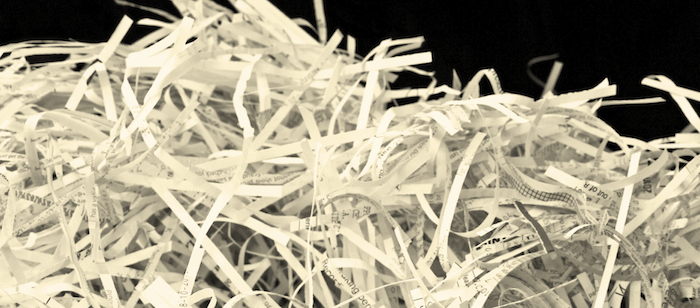
Just over a month ago, DARPA announced The Shredder Challenge competition to develop a system to solve puzzles by reassembling images of shredded documents with a $50,000 prize for the winning entry. Yesterday the prize was won by All Your Shreds Are Belong to U.S., a San Francisco-based team that was the first to correctly reconstructed each of the five challenge documents.

Research Don Engel
It's unfortunate that there was no prize for second place, because that honor was won by Schroddon, a two-person effort including UMBC Assistant Vice President for Research Don Engel. While most of the top teams had a handful of software engineers and used commercial crowdsourcing services, Schroddon was a part-time effort by Dr. Engel and his wife, Dr. Marianne Engel.
Both Don and Marianne have Ph.D.s in Physics, but Don also has an undergraduate degree in Computer Science, did graduate work in computational linguistics, and develops software in his spare time for fun. Two of his active software development projects are ShowMe3D, an application for Mac and iOS that can be used to take and view 3D photos, and When2meet, a free web-based tool for finding the best time for a group to meet.
The Shredder Challenge was the latest competition run by DARPA as a low cost way to spur research on new problems. The press release describes it this way.
"The Shredder Challenge represents a preliminary investigation into the area of information security to identify and assess potential capabilities that could be used by war fighters operating in war zones to more quickly obtain valuable information from confiscated, shredded documents and gain a quantitative understanding of potential vulnerabilities inherent to the shredding of sensitive U.S. National security documents."
"Lots of experts were skeptical that a solution could be produced at all let alone within the short time frame,” said Dan Kaufman, director, DARPA Information Innovation Office. “The most effective approaches were not purely computational or crowd-sourced, but used a combination blended with some clever detective work. We are impressed by the ingenuity this type of competition elicits."
Over 9,000 teams registered for the Shredder Challenge and it is quite an achievement for the Engles to have placed second, especially against many much larger teams. If you are interested in seeing what the data is like, you can download it from the DARPA site.
These challenge competitions are becoming more common and are a great way for students to get involved in independent research and maybe win fame and fortune.